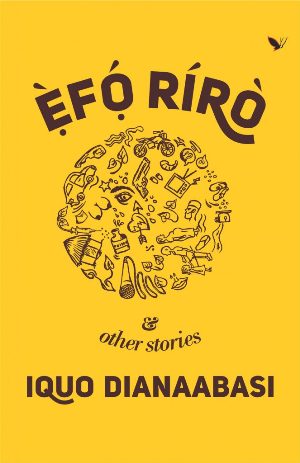The 17 Sustainable Development Goals (SDGs) and 169 targets of the United Nations adopted by all United Nations Member States in 20151, seek to realize the human rights of all and to achieve gender equality and the empowerment of all women and girls. These goals are integrated, indivisible and balance the three dimensions of sustainable development: the economic, social and environmental. 1
Literary artists and other creatives can contribute to the achievement of these SDGs by creating literary masterpieces that explore SDG themes in various genres and formats targeted at a variety of audiences. These literary masterpieces create awareness about societal ills, are conversation starters, and can proffer solutions via advocacy if channeled to the appropriate quarters. The UN SDG Book Club African Chapter provides a formidable platform that unifies and enhances networking among creatives, book clubs, and libraries across Africa.

I have always been driven by a desire to write and speak up for voices that are mere whispers and pain so deep that it cannot be expressed. A lot of my writing focuses on the challenges of being an African woman living in a largely patriarchal society in which a woman is supposed to be silent and fulfill oppressive traditionally crafted gender roles. My book Rude Awakening was a UN book pick for exploring SDG5: Gender Equality. It highlights the non-inclusive inheritance laws in Eastern Nigeria and the oppression of widows by their in-laws. My book Shadows From the Past highlights the psychological effects of domestic violence and child abuse.  Domestic violence and abuse can be prevented if communities speak out and take action. As we say in Lagos: SORO SOKE! Victims who mange to survive but who do not receive therapy can grow up to be emotionally traumatized adults incapable of having healthy relationships. The extremely sad death of the Nigerian gospel singer Osinachi and the tales of abuse that have trailed her passing shocked several people and there is presently a cry for justice and the implementation of laws that will not only protect women but empower them to speak up and have the courage to Leave to Live.
Domestic violence and abuse can be prevented if communities speak out and take action. As we say in Lagos: SORO SOKE! Victims who mange to survive but who do not receive therapy can grow up to be emotionally traumatized adults incapable of having healthy relationships. The extremely sad death of the Nigerian gospel singer Osinachi and the tales of abuse that have trailed her passing shocked several people and there is presently a cry for justice and the implementation of laws that will not only protect women but empower them to speak up and have the courage to Leave to Live.
The term ‘book or literary ecosystem’ was defined by Stacey Megally2 as the interconnected businesses and people, who create, publish, distribute, and sell books. Taking a cue from biological definitions of an ecosystem I have defined a book ecosystem as the complex interaction between people, processes and structures that provide books and literary materials that satisfy human needs, either directly or indirectly. This definition permits the consideration of external factors that can affect the people involved in the conception, writing, production n, advertisement, marketing, and sale of books and literary materials in any format.
“ ... as writers, we do not need to act as helpless, powerless “small cogs” in the publishing machine. Perhaps more so now than at any time in the past, we, writers and as readers, have the potential ability, if we wish to exercise it, to influence and to build portions of the emerging literary ecosystem.” Andrew Fox3

For creatives to contribute to sustainable growth of the book ecosystem there must be a healthy and constructive co-operation between all team members in the book project. There must be focus, commitment, synergy, and unity engrained in their teamwork. Even though the finished product often bears only a few names on the cover, a team was involved. Creatives must remain teachable and desirous of excellence and the maintenance of the book industry’s best standards and practices. New and innovative marketing strategies and algorithms need to be learned and solo marketing efforts are unlikely to bring sustainable growth.
External factors can disrupt the book system to varying degrees and creatives need to discover how to cope with these issues when they occur. Examples include: piracy, intellectual property theft, pandemics, war, insecurity, health challenges, infrastructural deficits such as energy issues, unavailability of reliable and affordable internet services and economic hardships.
To ensure sustainable growth of the book ecosystem, it is important to ensure equity in writing opportunities and access, greater inclusivity, celebration of diversity, more support for emerging writers, better exposure for underrepresented stories and authors, and increasing visibility of books in the ecosystem. Better funding, more affordable training programmes, subsidized warehousing, print-on-demand facilities and a seamless order fulfillment process in bookstores and retailers will also help.
There is a lot that can be done and with the will and desire to have a system that fosters creativity instead of frustrating it, we will get there.
References
- The 2030 Agenda for Sustainable Development, https://sdgs.un.org/goals [cited on 24/4/2022]
- What Is The Literary Ecosystem And Why Does It Matter? Stacey Megally: https://bookriot.com/literary-ecosystem/ [cited on 22/4/2022]
- What Kind of Literary Ecosystem Do We Want to Build? https://www.fantasticalandrewfox.com/articles/what-kind-of-literary-ecosystem-do-we-want-to-build/[cited on 25/4/2022]










